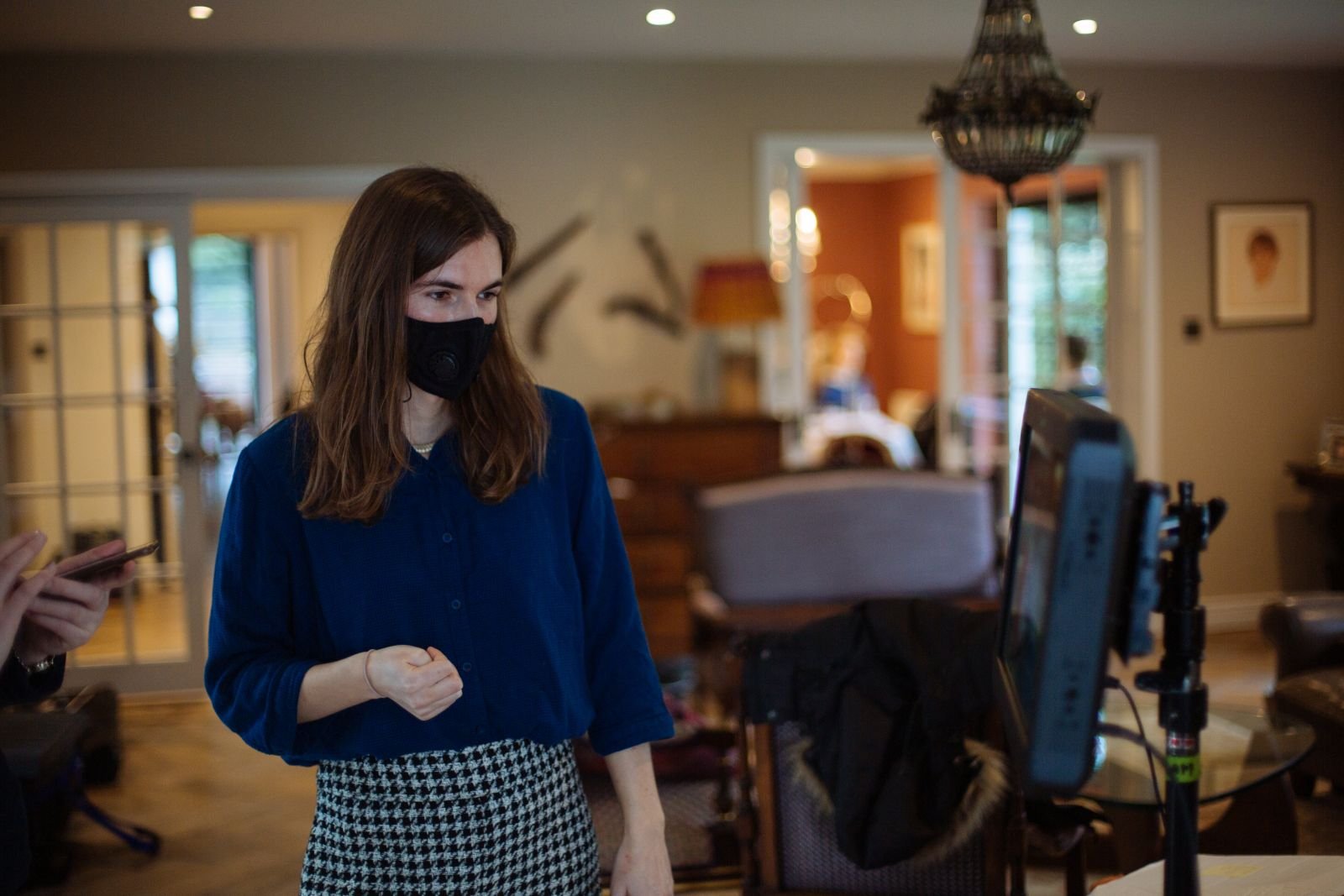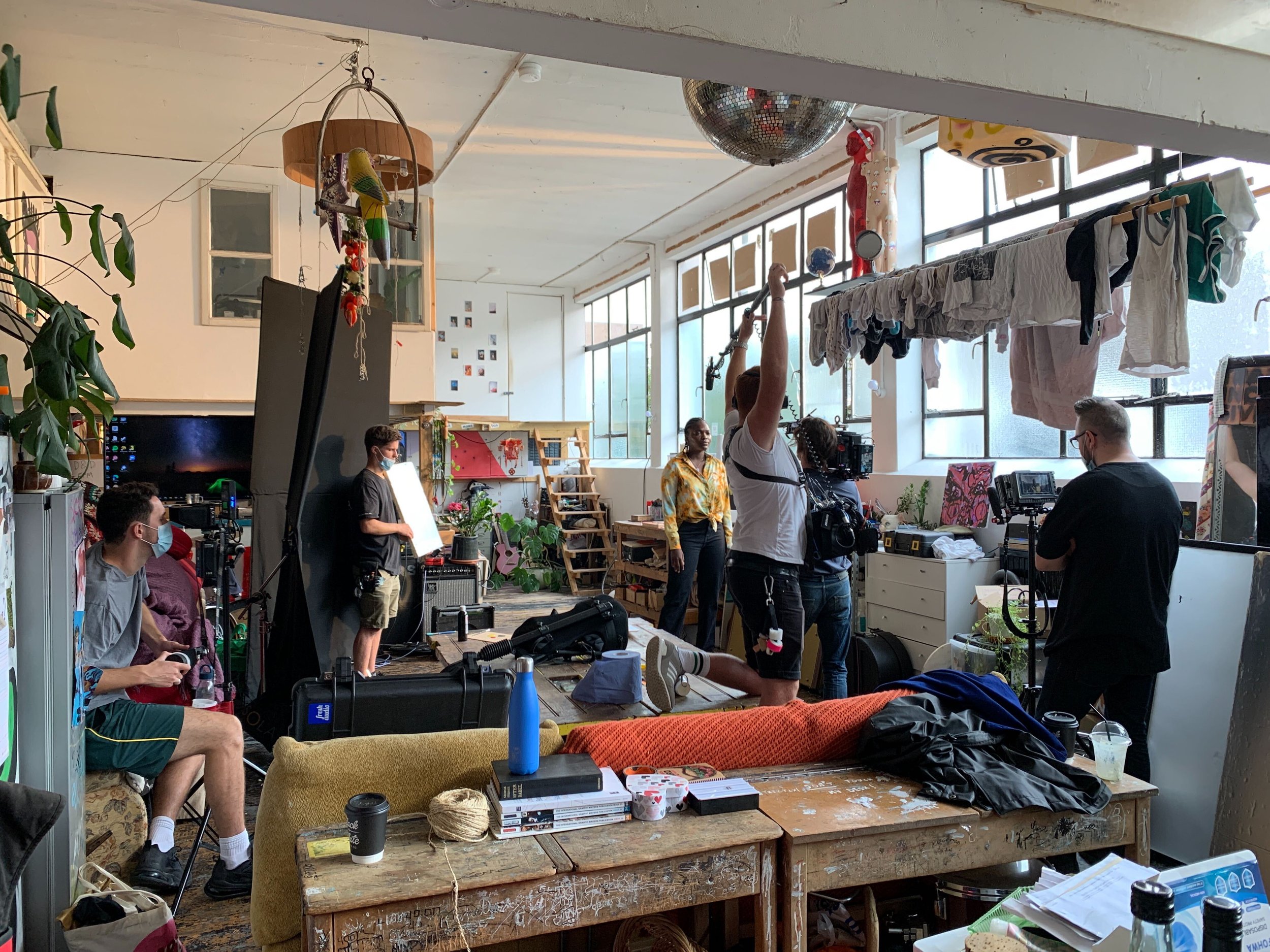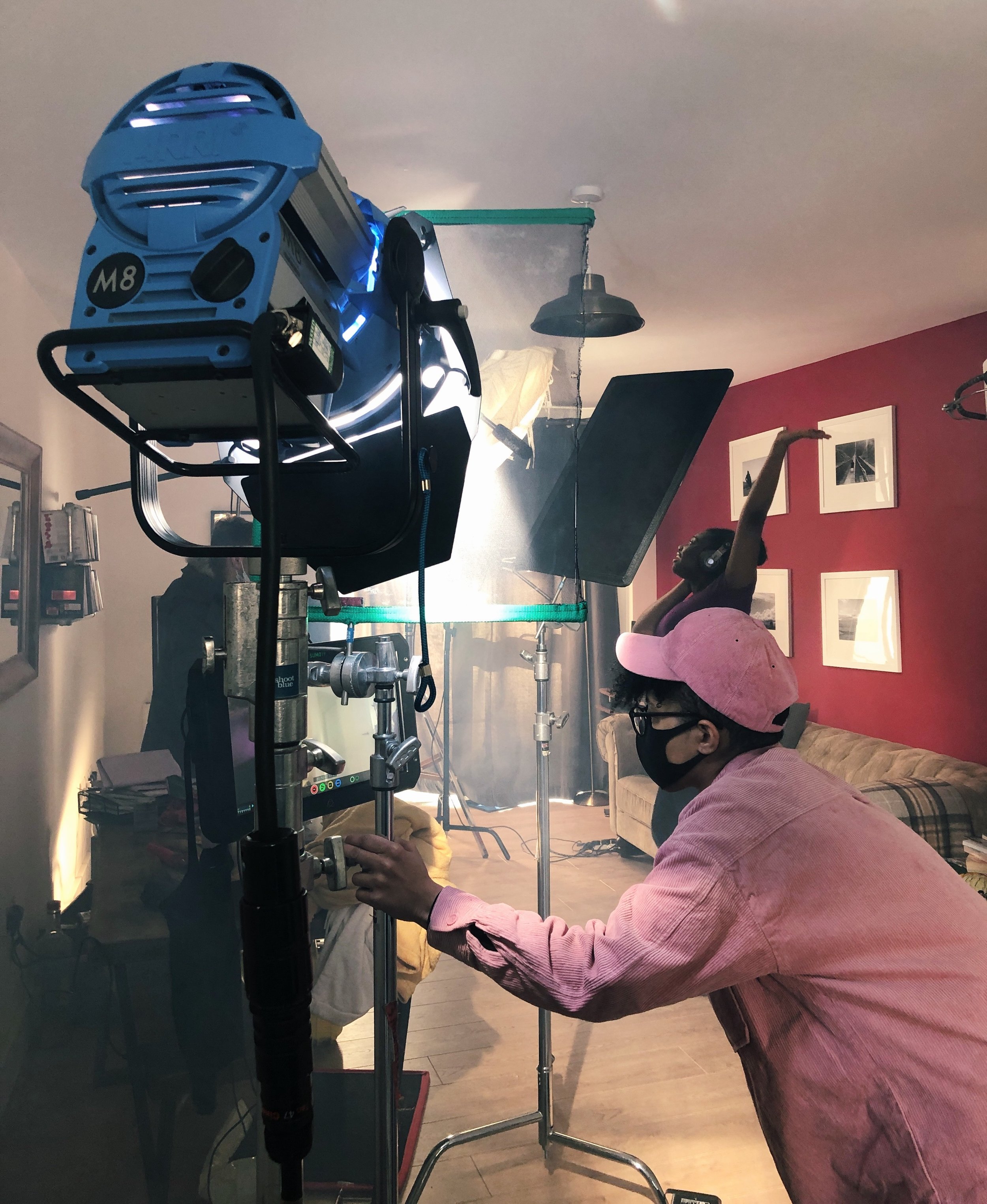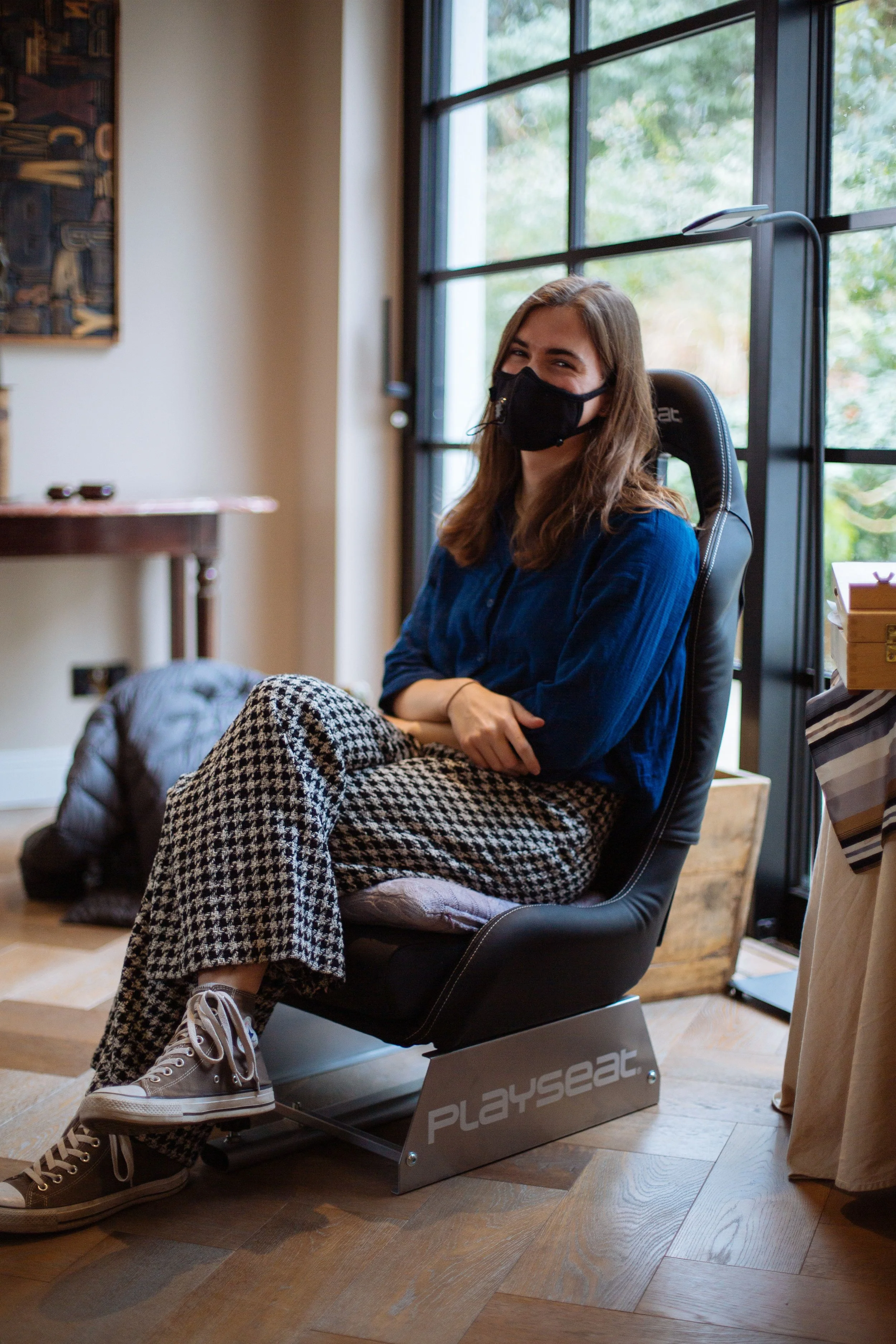How I Learned to Stop Worrying and Love the Constraints of Covid
What’s this? Yet another article about the trials and tribulations of working during this seemingly interminable pandemic?
Not exactly.
I’m Phoebe, I’ve been a director at 3angrymen for coming up on nine months now, and I’ve already had the pleasure of directing work for the Scouts, the NSPCC, P&O Ferries, and Girlguiding. It’s been a wild ride, and we’ve done all of it while dealing with what’s hopefully (!) now the tail end of Covid.
But rather than delving into the tediously well-documented downsides of the pandemic, I want to talk about the ways it’s changed how I direct films for the better.
1. Why do I do it like this?
I never went to film school or had any formal training, so my processes have evolved over the years through a combination of learning on the job and watching YouTube videos called ‘5 Top Tips for Low Budget Filmmakers’. In the past I’ve justified the way I run my set purely on the basis of “that’s just how I’ve always done things”, or “that’s how they said to do it in ‘5 Top Tips for Low Budget Filmmakers’”.
Then Covid came along. Most of the restrictions are self-evidently not an improvement, but they still made me confront why I do things a certain way.
As an example, I used to be fairly laissez-faire about letting crew members move around on set, and I’d rarely mind if a dozen crew members were all packed into a tiny room, even if the actor was meant to be having an intimate emotional breakdown in said tiny room.
Covid forced me to be much more strict about who was allowed on set, cutting it down to who was truly essential. It made me realise that often this is a much better way to work, and that it’s far more efficient to have a good radio system or trusted producer calling crew to set when they’re needed.
2. Nothing will stop my production unless I let it
In pre-Covid times, I used to take any last minute disasters hard. If anything went wrong unexpectedly, I’d be totally blindsided and would feel like I might as well give up and become an accountant. Inevitably things would work out, but somehow my brain was programmed to expect things to go well, and so any problems felt like being on the Titanic post-iceberg.
The Covid era introduced me to a level of stress that I never before knew existed. I’ve had to deal with my production manager, production assistant, camera operator and 1st AC having to drop out to self-isolate two days before a shoot, and then a replacement production manager dropping out at 11:00pm the night before the 9am call time.
The sheer deluge of disasters finally made me realise that there isn’t a single problem that can’t be solved - or at least, cannily navigated around - by sitting down with my producer and marshalling some intense creativity.
The fires of Covid have left me permanently a more Zen-like director, and I find that even non-Covid-related issues don’t bother me as much any more.
3. Taking safety seriously
Before Covid, the only time I’ve been faced with an obviously dangerous situation on set was when I was a teenager, running around the fields making films with my friends, and one night we had a terrifying run-in with a shotgun wielding farmer. In my professional career, I have to admit I’ve mostly seen risk assessments as merely a piece of paperwork to be ticked off by my producer.
Covid changed all that. The possibility that any set could turn into a superspreader event is something I have to be constantly mindful of. My shoot could be responsible for not just getting my cast and crew ill, but also starting chains of infection that end up reaching more vulnerable people.
This stark reality has made me a more responsible filmmaker. I’m now more aware that a film set is always a potentially dangerous operation. Combine hot lights, heavy machinery, and lots of people trying to move around each other at speed, and there’s a far higher baseline level of risk than with a regular office job.
Going forward, I think I’ll be a lot less likely to grumble when things are moving slowly because people are taking the time to set up equipment properly.
4. I won’t take connection for granted
Facemasks are absolutely horrible to wear all day. They also make it harder to communicate with people, because you can’t read facial expressions. This is bad, if your job is to build rapport with people in stressful situations, or to subtly adjust an actor’s performance.
But mask wearing also exposed a weakness in my directing that I’d never faced up to. I’m someone who likes to avoid having difficult conversations, and I can get shy when meeting lots of new people. Covid made me realise that because of this I’d not been paying as much attention as I should have to making sure my cast and crew were happy and understood what we were trying to achieve. I used to rely on a perfunctory nod, and I often wouldn’t take the time to properly check in with people.
Going forward, even once masks aren’t required, I intend to be more deliberate about checking in with my cast and crew throughout each shoot day. Communicating with my collaborators is like 90% of my job, and I should spend much more energy making sure I’m doing it well.
5. Why am I doing this?
As the director, I have a lot of responsibility. Not just as a leader on set, but more fundamentally as the shepherd of the film’s creative vision.
I’m veering dangerously close to totally disappearing up my own behind here, but the purpose behind all this - all the processes, practicalities, hard working collaborators, and scarily large sums of money - is to turn an ephemeral idea into reality.
Over the last two years, I’ve found myself pushing a lot harder to not just settle for creatives that are ‘fine’. To constantly ratchet up my standards for what a film can be. Can I take constraints and weave them into a strength? Can I find a way of doing something that’s never been done before?
But it’s more than just pushing myself in terms of quality. Across months of home working, the ebb and flow of restrictions and changes to how we live and relate to one another, I’ve also found myself thinking far more about the value of what I’m working on. How are the projects I work on creating value for the companies who commission them, and how are those companies adding value to the world?
Before the pandemic, I didn’t care too much about the type of projects I directed - I just wanted to make cool work, maybe with a nice camera and some snazzy camera moves.
Last week, I directed a film for the NSPCC, with the goal of making it easier for parents to talk to their children about bodily autonomy. It was a simple setup - just one camera filming an actor* talking.
But I finished that day feeling far happier with myself - my work and what I was bringing to it - than I’ve ever felt on a big budget set with all the flashy gizmos.
That’s something they didn’t mention in ‘5 Top Tips for Low Budget Filmmakers’.
So no, I’m not going to miss Covid restrictions in the slightest, and I can’t wait to throw my mask in the bin. But I’ll always be weirdly grateful for these strange times, because I think Covid has made me into a stronger and more purposeful director.
*Admittedly this actor was Natalie Dormer, which does always help.








